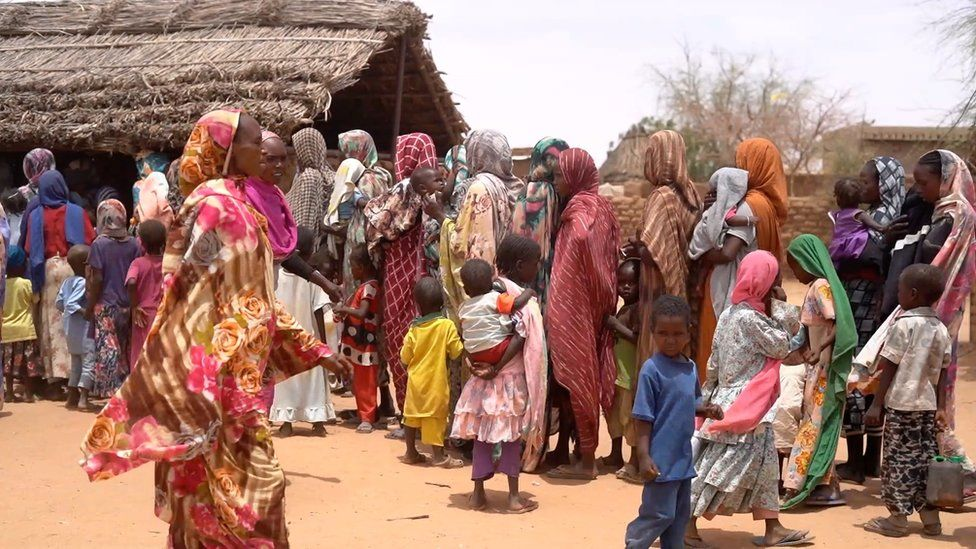Amidst the enduring conflict in Sudan, a poignant narrative emerges from Zamzam Camp, where Qisma Abdirahman Ali Abubaker, with eyes reflecting sorrow and a voice subdued, epitomizes the struggles of millions displaced by the civil war. In the grip of what the UN deems the “world’s worst hunger crisis,” Qisma, like countless others, queues for rations with a heavy heart.
The meager provisions no longer suffice for her family, having already lost three children to disease and malnutrition within four months. As she seeks refuge in Northern Darfur’s Zamzam Camp, a once pivotal safe haven now bears witness to unfathomable grief amid a relentless conflict entering its second year.
Medical aid organization Médecins Sans Frontières (MSF) sheds light on the dire conditions, revealing a chilling reality: one child succumbs every two hours, while malnutrition afflicts three in every ten children under five, alongside a third of pregnant and breastfeeding mothers—a crisis looming larger than previously estimated.
Yet, the scope of suffering extends far beyond Zamzam. Access to Darfur remains arduous, impeding aid efforts and journalistic coverage alike. For Qisma, access to medical care or basic necessities remains a luxury she cannot afford, recounting the harrowing loss of her children due to lack of resources.
The plight of Zamzam mirrors the broader anguish gripping Darfur, where conflict has eroded food security and decimated healthcare infrastructure. With most aid agencies evacuated and supplies disrupted by conflict lines, the once vibrant community faces an existential threat compounded by looting and bureaucratic hurdles.
While sporadic relief efforts offer fleeting respite, the overarching crisis persists, emblematic of Sudan’s broader struggle—a nation besieged by conflict, hunger, and a crumbling healthcare system, where survival hangs by a thread for millions.

